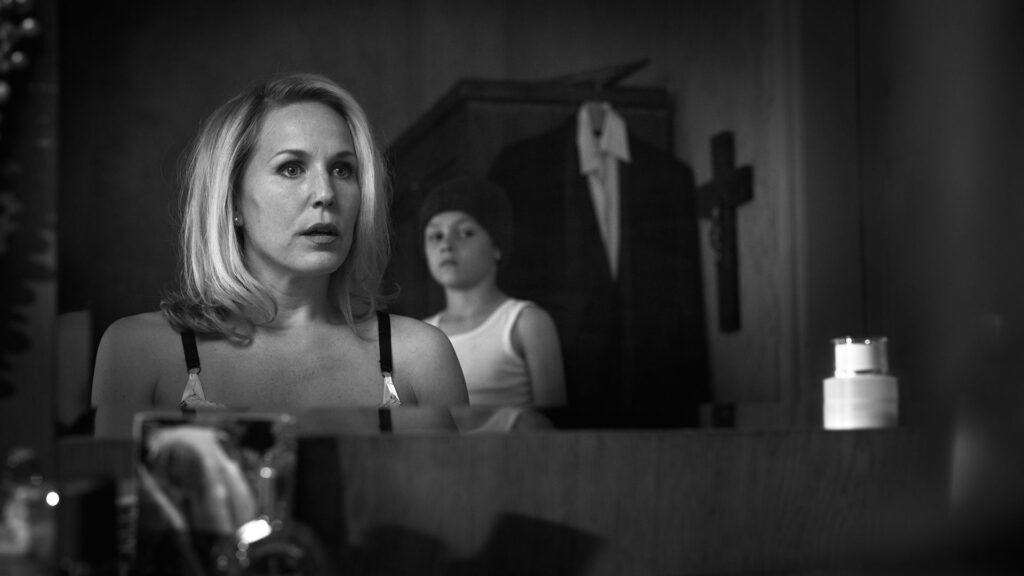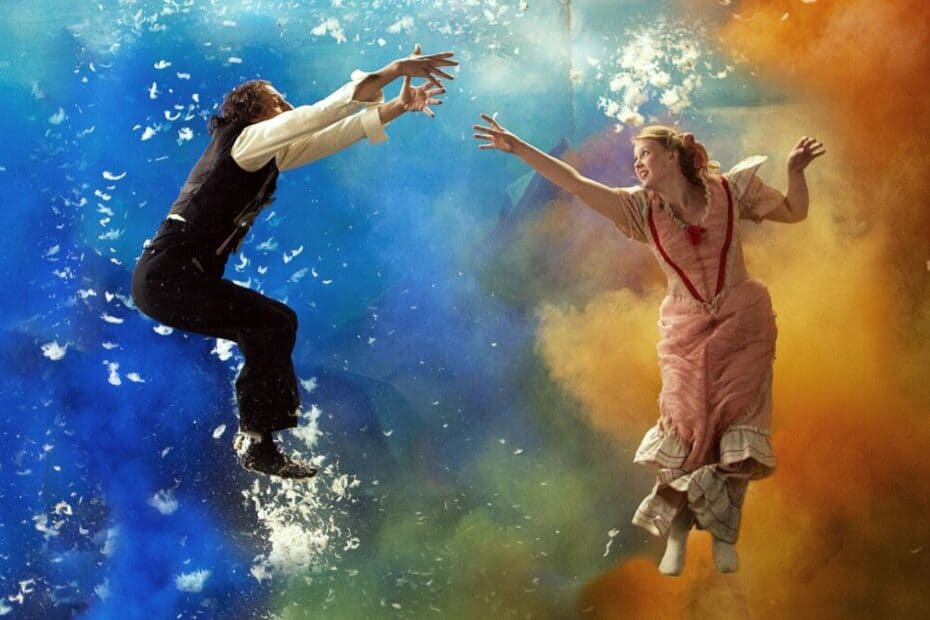Two of the many world and international premieres at this year’s Black Nights Film Festival came from the Benelux countries. Both were made by distinguished directors. Natasha’s Dance (De Dans van Natasja) by Jos Stelling and The Magnet Man (De magneet man) by Gust Van den Berghe. Stelling is a veteran who became famous in the eighties for films such as The Illusionist (De Illusionist 1983) and The Pointsman (De wisselwachter 1986). Both films were characterized by their enigmatic, if somewhat quirky qualities. The director is a true cinephile who started the Dutch Film Days (now Dutch Film Festival) in 1981. A festival about and for Dutch directors: he also runs several arthouse cinemas in his hometown, Utrecht.
Daantje is a wonderful, lonely little boy who hardly speaks or goes out. His mother comforts him by telling him about a girl waiting for him who can dance beautifully. Otherwise, neither of his parents seems to care about Daantje that much, and eventually, they abandon him. We see him as an adult, a homeless person brought up in a church orphanage. One day, he stumbles upon former ballerina Natasha. Could this be the dancer his mother was talking about, or does she have enough problems of her own so she can’t be bothered with Daantje’s? They embark on a trip to her homeland, Russia.

Jos Stelling’s last film
It is difficult to pin the film to any timeline or other kind of tangible reality. In the interview on the Black Nights Film Festival page, the director talks about the importance of “cinéma d’auteur. It’s slightly jarring to hear that term in a 2023 context. Some parts of Natasha’s Dance work beautifully with Goert Giltay‘s black-and-white images, whereas some scenes almost resemble a parody of arthouse tropes. Altogether, the positives outweigh the negatives, and if this is Stelling’s last film, as he claims, it’s an honourable work to end a long career. It’s no coincidence that the film opened at PÖFF, which is one of the few festivals that provide different kinds of experiences without being trendy.
Gust Van den Berghe has made a name for himself in arthouse circles ever since his debut feature Little Baby Jesus of Flandr (En waar de sterre bleef stille staan), which premiered in Quinzaine in Cannes in 2010. It was followed by Blue Bird (2011) and Lucifer, which made a big splash on the festival scene in 2014, winning the main prize at the Black Nights Film Festival and Nowe Horyzonty. Van den Berghe’s films have typically tried to push the boundaries of cinematic expression. One example is the use of actors with Down’s Syndrome in the debut feature or the circular image in Lucifer. Thus, I entered The Magnet Man expecting to experience something demanding and “surprising”,
The story of Antwerp citizen Lucien managed to surprise me, possibly not in the way I thought. He is the titular character who may not have magnetic charisma, but metal objects get stuck to his body. This results in slapstick-like moments, including one during his mother’s funeral. Afterwards, Lucien’s father gives him a violin full of banknotes, but after an incident (obviously of a magnetic kind), he ends up with a circus instead.1Danny Ronaldo, who plays Lucien, is a circus performer in real life. There, he meets and is smitten by Gervaise. They dance a tango together, where his magnetic powers play a pivotal role. The circus is called Theatre Malfait, named after Gervaise’s father.
The story will take different turns from there. It’s a picaresque tale in many ways, not least after the shift to colour. During the fest part, Natasha’s Dance came to mind (Jan Bijvoet appears in both films). There are lots of singular elements to enjoy and admire in The Magnet Man, from the lensing by David Williamson to the production design by Natalia Trevino, but the overall result is too Felliniesque for my taste. In many ways, it’s the director’s most conventional film, and I kept waiting for some formal turns that never happened. That might imply that I was stuck to my expectations and wasn’t ready to take in the riches on offer in the film.
There is still the issue that the film deals with themes and tropes that have been used countless times before without adding much originality. The Magnet Man might become a popular success with its handsome imagery, but it doesn’t offer much food for thought. It is still constantly entertaining and never as annoying as this year’s Venice winner.


